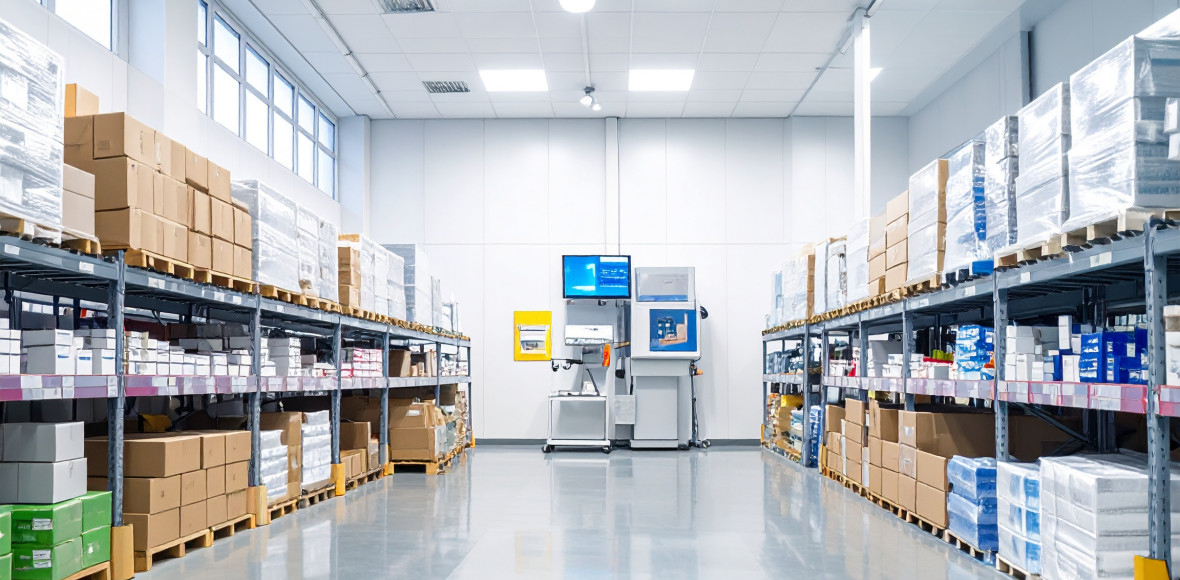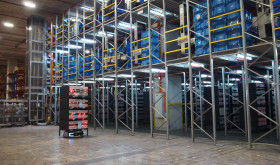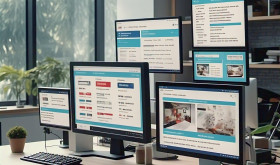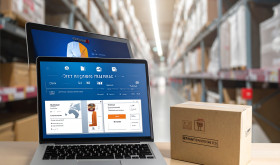
The pharmaceutical industry works in one of the world’s most complex, regulated, and delicate supply chain settings. From strict rules to temperature-controlled storage, running pharmaceutical warehouses needs precision, efficient, and clear processes.
A warehouse management system gives the digital support to tackle these issues, helping pharmaceutical companies deliver safe, compliant, and on-time products to patients and doctors.
Understanding the Unique Challenges of Pharmaceutical Warehousing
Unlike other fields, pharmaceutical warehousing faces many intertwined problems:
- Regulatory Compliance
Pharmaceutical companies must follow Good Distribution Practices (GDP), Good Manufacturing Practices (GMP), and local rules like the U.S. FDA’s 21 CFR Part 11 or the EU’s Falsified Medicines Directive (FMD). These guidelines call for precise record-keeping, product tracking, and tested storage methods.
- Temperature and Environmental Control
Many medicines, vaccines, and biologics need exact temperature and humidity levels to stay effective. Even small changes can spoil products, cause financial loss, and put patients at risk.
- Batch and Lot Traceability
Companies must trace every product back to its batch or lot number to manage recalls and ensure quality.
- Inventory Accuracy
Too much stock leads to stuff going bad before use. Too little stock can cause shortages that impact patient care.
- Complex Order Fulfillment
Orders might include controlled substances, cold-chain items, and dangerous materials. Each type needs its own handling and paperwork.
- Risk of Fake Medicines
Fake medicines pose health risks worldwide. This makes it crucial to verify and track medicines.
How a Warehouse Management System Tackles These Challenges
A warehouse management system is software that streamlines and automates warehouse tasks, from receiving goods to shipping them out. For the pharmaceutical industry, a modern warehouse management system does more than boost efficiency—it enables compliance, quality, and safety.
- Regulatory Compliance Automation
A warehouse management system designed for pharmaceuticals comes with built-in compliance workflows. These can:
- Create and store digital audit trails to comply with 21 CFR Part 11.
- Control substances with secure access logs.
- Generate automated reports for GDP/GMP inspections.
This ensures documentation, validation, and accessibility of every process for audits, lowering the risk of penalties for non-compliance.
- Temperature and Environment Monitoring
By adding IoT sensors, a warehouse management system can:
- Always check temperature and humidity in storage areas.
- Send instant alerts if conditions stray from safe ranges.
- Stop the release of products stored outside compliance limits.
This automation keeps sensitive products safe and maintains cold-chain integrity.
- End-to-End Traceability
Pharmaceutical WMS solutions provide detailed batch, lot, and serial number tracking:
- The system monitors products from their arrival at the warehouse to their delivery.
- If a recall happens, the system can quickly spot all impacted stock and where it’s located.
- This speeds up recall actions and cuts down on health and legal risks.
- Inventory Optimisation
A warehouse management system boosts inventory accuracy through:
- Real-time stock updates using barcode or RFID scanning.
- Auto-set reorder points to avoid running out of stock.
- Keeping tabs on expiry dates to use First-Expired First-Out (FEFO) picking methods.
This prevents medicine from going to waste and makes sure they’re on hand for urgent medical needs.
- Streamlined Order Fulfilment
With customisable rules, a warehouse management system can:
- Put urgent orders for hospitals or emergency response at the top of the list.
- Mark products that need special handling, like dangerous or heat-sensitive items.
- Set up automatic paperwork for shipping rules.
This leads to quicker, mistake-free delivery while still following the rules.
- Protecting Against Fake Products
By adding tracking and checking features, a warehouse management system helps fight counterfeit medicines:
- Every package gets its own code, scanned whenever it moves.
- Checks in real-time make sure only real products leave the warehouse.
This safeguards the brand’s reputation and keeps patients safe.
Additional Benefits for the Pharmaceutical Industry
Besides fixing current operational challenges, a warehouse management system offers long-term business advantages:
- Data-Driven Insights—AI-powered demand forecasting helps predict spikes in medication needs, like during yearly flu seasons.
- Operational Efficiency – Automation cuts down on manual work and reduces human mistakes.
- Scalability—The system grows with expanding product lines, new warehouses, and worldwide distribution networks.
Case Example: WMS in Action
Think about a pharmaceutical distributor supplying hospitals, clinics, and drugstores across the country. Before they started using a warehouse management system, they had problems with handwritten temperature records, lost inventory, and compliance checks that took forever to get ready.
After they started using a warehouse management system with IoT sensors and RFID tracking:
- Temperature compliance incidents dropped to zero due to alerts in real time.
- Inventory accuracy climbed to 99.9%, getting rid of stockouts of vital medicines.
- Audit preparation time decreased by 80%, as all records were easy to access right away.
The investment improved compliance and also allowed staff to turn their attention to customer service and quality assurance.
How to Best Implement a Pharmaceutical Warehouse Management System
- Pick a Tested Solution – Make sure the warehouse management system meets pharmaceutical industry rules.
- Integrate IoT and RFID – Real-time visibility is critical for high-value, sensitive products.
- Train Staff Thoroughly – Following the rules means everyone uses the system right, all the time.
- Plan for Scalability – Think ahead about more products, buildings, and places to sell.
- Focus on Data Safety – Protect sensitive data and product authentication records.
What’s Next: Smart Tech in Pharmaceutical Warehouses
The next generation of warehouse management systems will use AI and machine learning to:
- Forecast inventory requirements using disease outbreak information.
- Plan the best routes for pharmaceutical deliveries with temperature-controlled trucks.
- Automate recall management within minutes.
These improvements will cut waste even more, boost patient outcomes, and make the pharmaceutical supply chain more resilient.
Conclusion
In an industry where safety, compliance, and speed are non-negotiable, a warehouse management system isn’t just new tech—it’s a vital investment. By tackling the unique issues in pharmaceutical warehousing, a warehouse management system makes sure the correct medicines get to the right people, in the right condition, at the right time.
Pharmaceutical companies that adopt warehouse management system technology aren’t just preparing for the future. They’re also protecting public health and earning trust in their brand.










